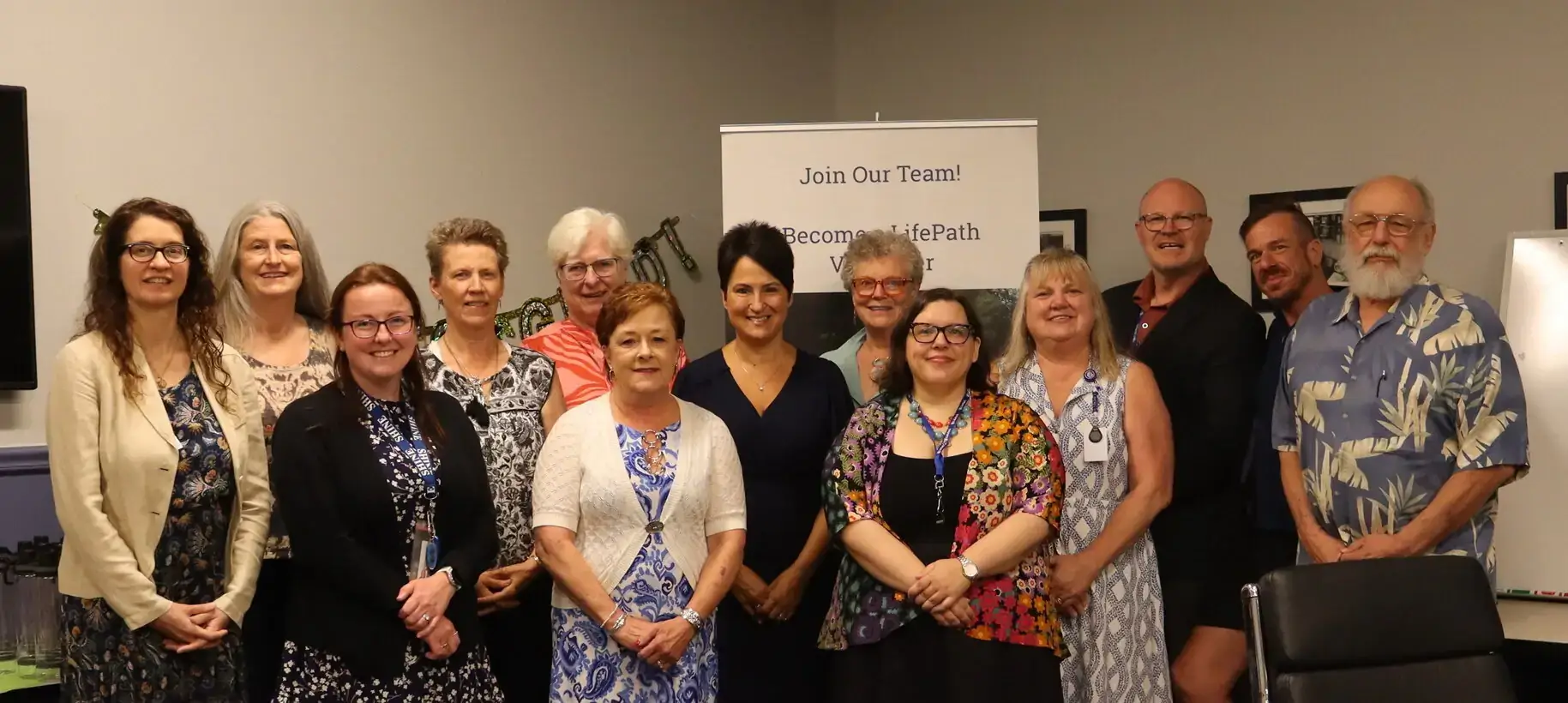What would our diets look like if we considered not just our own nourishment and health, but also the health of the Earth and our future generations? For me, this question is central to the theme of this year’s National Nutrition Month: “Fuel for the Future.” Since 1973, the Academy of Nutrition and Dietetics has been creating an annual campaign during the month of March to raise awareness of dietary and lifestyle choices that support health. For March 2023, our focus is on the role of food and nutrition in supporting planetary health.
Indigenous cultures around the world have long recognized the interconnectedness of life and therefore have understood that human health depends on the health of everything around us. The practice of respecting and caring for the land, water, plants, animals, birds, insects, and other creatures not only supports life around us, but is essential for our human survival and well-being now and into the future. The concept of reciprocity or exchanging and sharing for mutual benefit, is central to indigenous foodways: If we live lightly on Earth–grow, gather, hunt, harvest, and eat only what is needed–and give back nourishment for life to regenerate around us, Earth will continue to provide us with food, and we’ll have a greater opportunity to live in good health.
However, what we see happening is a deterioration of the Earth and human health. The UN Environment Programme estimates that we are using about 1.6 Earths to maintain our current way of life; one million species of plants and animals are threatened with extinction; 90% of marine fish stocks are exploited or depleted; 75% of Earth’s land surface has been significantly altered, with 24 billion tons of fertile soil being lost every year mostly because of agricultural practices. At the same time, diet-related diseases such as diabetes and cardiovascular disease continue to be on the rise, with more than a million Americans dying from these diseases each year.
This begs us to reflect on how our ways of living are contributing to the devastation and how food fits into this picture.
The global food system, which is everything from the way food is grown and processed, to how food is transported, marketed, and consumed, is considered a main driver of environmental degradation. The food system is responsible for more than 25% of greenhouse gas emissions, using 70% of freshwater and 40% of land surfaces, polluting the waters, and causing the rapid loss of biodiversity (the important variety of life that supports the Earth’s adaptability and vitality). Simply put, the systems that we depend on to feed us are not sustaining and regenerating life on Earth, but rather are causing destruction.
What can we do to shift this situation and support a healthier planet and healthier humans? In 2019, a group of 37 scientists from 16 countries formed the EAT-Lancet Commission to look more closely at the environmental imprint of the foods we eat. In their report, they claim that “Food is the single strongest lever to optimize human health and environmental sustainability on Earth.” A highlight of their findings was that diets that are good for the planet are also good for our health. The scientists promoted the “planetary health diet” as a solution—a nutritious diet that would allow Earth to survive and humans to be healthy. The diet is based on plant foods, including a variety of whole grains, fruits, vegetables, nuts, and legumes. Small portions of animal and dairy foods are allowed. The diet also has some flexibility depending on local geography, individual nutrient needs, and cultural and personal preferences. For some parts of the world, following this diet would involve increasing access to certain foods while in other parts, people would need to eat less of certain foods. For example, many people in the U.S. would need to eat a lot more vegetables, fruits, nuts, and legumes; and a lot less red meat, soda, sugar, fats, and highly processed foods.
What parts of your diet are you willing to change to support the health of the Earth? If you are a big meat eater, try substituting meat in your meals with plant-based protein foods like beans and lentils; doing this one meal a week can be a good starting point. You can also plan ahead and dedicate one day a week as “meatless day” and explore new vegetarian recipes. Perhaps you’ll like these meals so much that you’ll want to add more meatless days to your week. If you are a regular soda drinker, try adding a “soda-free day” to your week, and/or switching out soda for water or herbal tea made from locally harvested herbs. Stuck on chips, pretzels, popcorn, cookies, and other packaged snack foods? Again, start with small steps and dedicate one day a week to consuming nothing processed from a package. Swap out these snacks with some seasonal vegetables, fruits, and nuts instead. Taking these small steps can lead you gradually to eating a diet that is more aligned with the “planetary health diet.” You will likely feel your health improve too.
Supporting the health of the Earth through our diet, however, is not just a matter of shifting the types of food in our diet. I’d like to offer some additional practices that can support our desire for greater planetary and human health:
-
Grow an Awareness: Learn more about where your food comes from and how it gets to your plate. Who and what is involved in growing, harvesting, delivering, marketing, and preparing the food? What is the impact of these processes on the environment, on our social connections, and on our health? Having discussions about this in your community will help grow a collective consciousness. Having greater awareness will lead us to make choices that are better for the planet and for us.
-
Remember Traditional Practices & Lifeways and Keep Them Alive: Connect with people who have knowledge about surviving off the land, saving seeds, preserving food, and cooking with local, wholesome ingredients. Keep this knowledge alive by practicing these skills and sharing the knowledge with others.
-
Grow a Garden: Plant one or many seeds. Caring for plants is a great way to get in touch with the natural world. Growing your own food is a great way to learn how to care for land, improve your diet and health, and reduce your dependency on food from far away.
-
Support Small Farmers in Your Local Community: Small farmers are the backbone of our local food economy and the stewards of land in our communities. We need them to stay vibrant, strong, and healthy so they can take good care of the land and provide us with healthy food. They don’t receive the same government subsidies and insurance that large corporate farms get, so they are at risk of getting swallowed up by big business. They need our investment to survive and we need them to build the fertile land necessary for feeding our future generations. We’re not going to get this type of responsible and conscientious land stewardship from large scale industrial agriculture.
-
Advocate for Policies that Support Local and Sustainable Food Systems: The government and other organizations have the power and resources to improve our access to local and sustainably-produced foods, but we need to tell them what we need and why. Recognize the power of consumer demand– if we demand local food that is grown and raised in sustainable ways, then the government, organizations, businesses, and markets will put their heads together to figure out how to bring it.
-
Develop Mindfulness & Gratitude: Practice being mindful of the interconnectedness of all beings, the ways our lives are connected to the lives of the trees, animals, rivers, oceans, other people, and other living and nonliving elements around us. Having greater awareness of the ways we depend on everything around us will bring us greater gratitude and a sense of care and respect for others.
-
Strengthen Relationships in Your Community: Make efforts to connect with your neighbors, family members, and other people in your community. The practice of caring for each other is an important part of caring for the planet and supporting our health. LifePath is committed to strengthening our local community and networks of care. Our meal programs are not just about providing food in the community but also about checking in on people and building connections. Contact LifePath if you have questions about our programs or need help applying for food assistance, call LifePath at 413-773-5555, X1230 or 978-544-2259, X1230 to speak to a Resource Consultant, or email info@LifePathMA.org.
While it may feel daunting to tackle the environmental problems we face, recognize that your individual actions make a difference. What we need is not just a quick, band-aid solution to the problem, but a commitment to the long-term work of caring for the planet and creating a healthy place for future generations to thrive.






